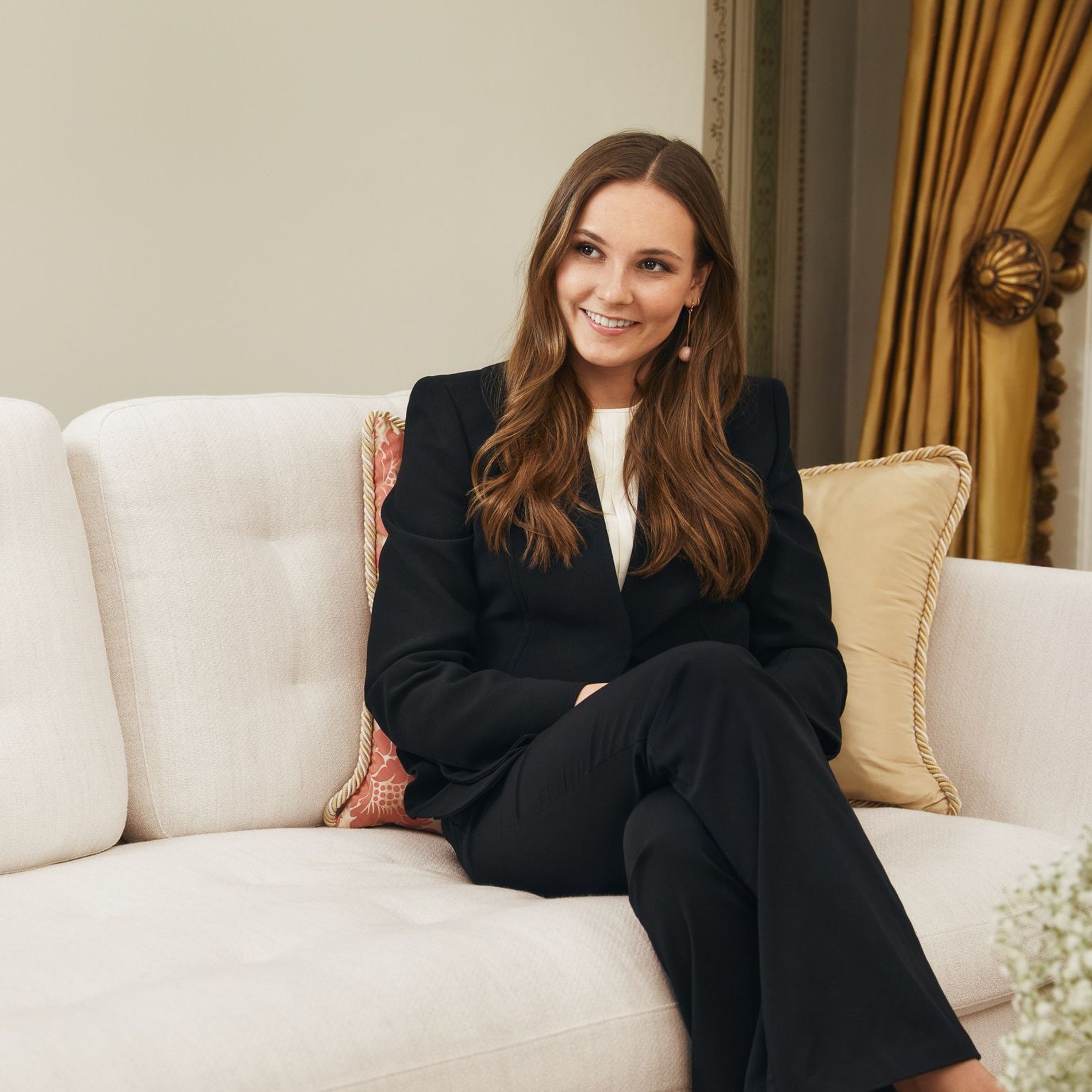Who are these future Queens? And what will they stand for as leaders?
It might seem like an alien concept to royal watchers, having lived with the Queen as the British head of state for more than 70 years, but the United Kingdom will not have another female monarch for at least three generations, following the reigns of King Charles III, Prince William, and Prince George. It’s in complete contrast to its European neighbours, where four monarchies are set to have a Queen on the throne next – Belgium, The Netherlands, Spain, and Sweden. But who are these future Queens? And what will they stand for as Gen-Z leaders?
Princess Ingrid Alexandra of Norway
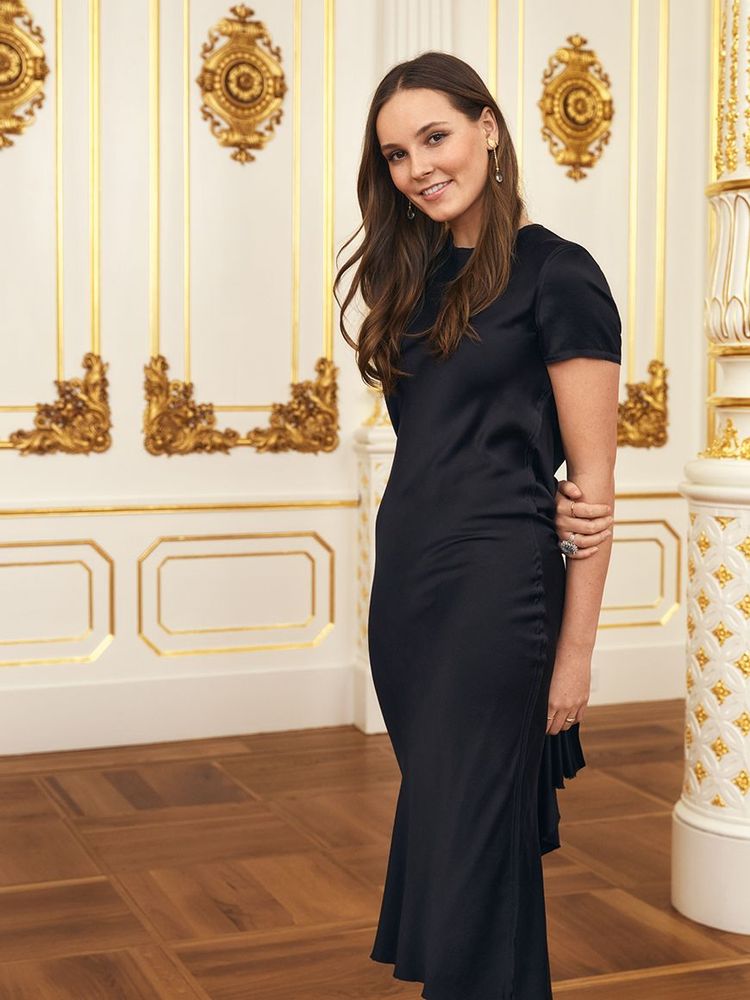
Photo: Ida Bjørvik, the Royal Court
As the eldest child of Crown Prince Haakon and Crown Princess Mette-Marit, Princess Ingrid Alexandra is poised to become Norway’s first Queen Regnant since Queen Margaret in the 15th century. Born into a progressive monarchy, Ingrid Alexandra benefits from Norway’s absolute primogeniture laws, which allow the eldest child – regardless of gender – to inherit the throne.
At just 20 years old, Ingrid Alexandra has already begun to make her mark. She has attended public schools, surfed competitively, and worked summer jobs, aligning herself with the grounded, relatable image that modern royals strive for. Her sense of duty, however, is undeniable. In 2022, she celebrated her 18th birthday by stepping into the national spotlight, where she made her first significant public appearances, including attending a cabinet meeting – an honour usually reserved for monarchs and heirs to the throne.
Much like her Gen-Z counterparts, Ingrid Alexandra speaks openly about her life, showing glimpses of relatability that resonate with Norway’s younger generations. While the Norwegian royal family is not without its controversies – see the marriage of the princess’s aunt Princess Märtha Louise to Durek Verrett, a self-proclaimed shaman – Ingrid Alexandra has maintained a commendable public image.
Princess Leonor of Spain
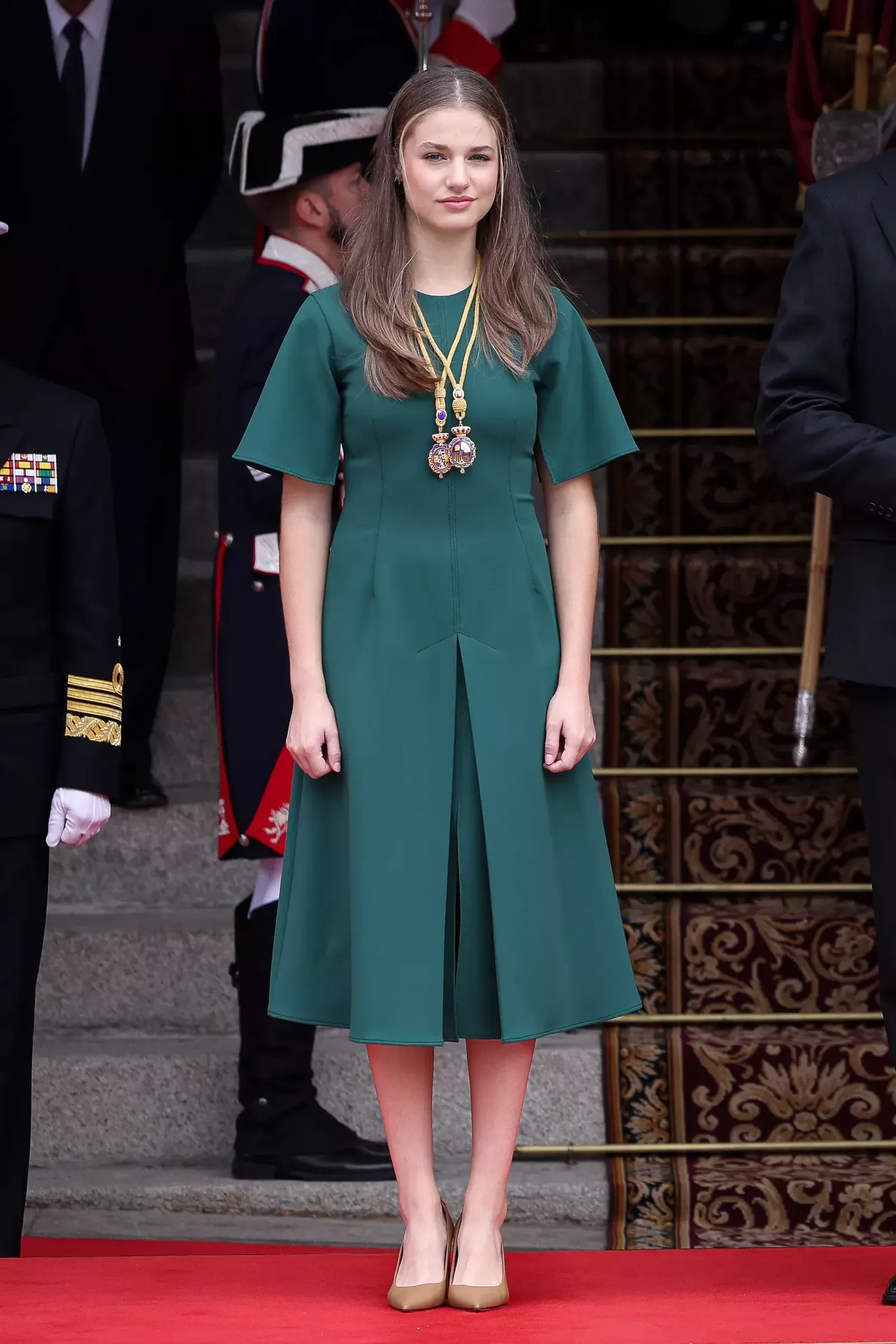
Princess Leonor of Spain. Photo: Getty
The world has been gripped by so-called 'Leonormania' especially after the heir to the Spanish throne turned 18 last year. The eldest of King Felipe and Queen Letizia’s two daughters, Princess Leonor is fast becoming a national obsession, with her every fashion choice (and potential boyfriend) documented and dissected.
Her rising public profile is in contrast to her closely guarded childhood, during which she made very few public appearances. After attending primary school in Barcelona, she moved to Wales to complete her education at UWC Atlantic (the same school as Princess Elisabeth of Belgium), where she graduated earlier this year. She is now enrolled in a military academy undergoing officer training, which will last for three years.
Ahead of her 18th birthday, she presented her inaugural Princess of Asturias Awards, managing to appear decidedly un-starstuck when meeting Hollywood icon Meryl Streep and Japanese author Haruki Murakami.
Much like her father, Leonor will be keen to distance herself from the fiscal scandals of her grandfather, the ex-King Juan Carlos, which also implicated her aunt and uncle, and have played out telenovela-style in Spain over the last decade. She will do well instead to emulate her mother and grandmother, the beloved Queen Sofia, whose chic style she has already clearly inherited.
In terms of politics, one issue she may have to face head-on is the rise of Catalan separatism—an issue that her father made a rare public statement against in 2020, and around which he has been widely criticised.
Princess Elisabeth of Belgium

Photo: Getty
Princess Elisabeth will make history when she ascends to the throne as the country’s first Queen Regnant. A decade before her birth, the primogeniture was altered to allow for female succession, and she would be the first monarch to benefit. Had it not been changed, her younger brother, Prince Gabriel, would have been the next King.
The 23-year-old is the eldest daughter of King Albert II and Queen Paola, and as well as Prince Gabriel, also has a second younger brother, Prince Emmanuel. She spent her formative years in Brussels, before attending “Hippie Hogwarts” – also known as UWC Atlantic College in Wales. After completing her education, she undertook a year of military training at the Royal Military Academy in Brussels, following in the footsteps of other heirs to the throne. She then studied at Lincoln College at Oxford University, where she competed in the rowing team, and graduated in July 2024.
She’s a confident public speaker, having had lots of practice: her first speech was at the age of nine, when she opened a children’s hospital named in her honor. She’s also becoming increasingly recognised for her fashion choices, with reports of the “Elisabeth” effect in Belgium, where her fans rush out to buy what she’s wearing, drawing comparisons to the Princess of Wales.
In recent years, Belgium, like many other Western nations, has had to confront its colonial past. How the Princess decides to acknowledge and apologise for Belgium’s part remains to be seen, but will be vital for how she’s viewed both at home and on the world stage.
Princess Victoria of Sweden (and Princess Estelle)
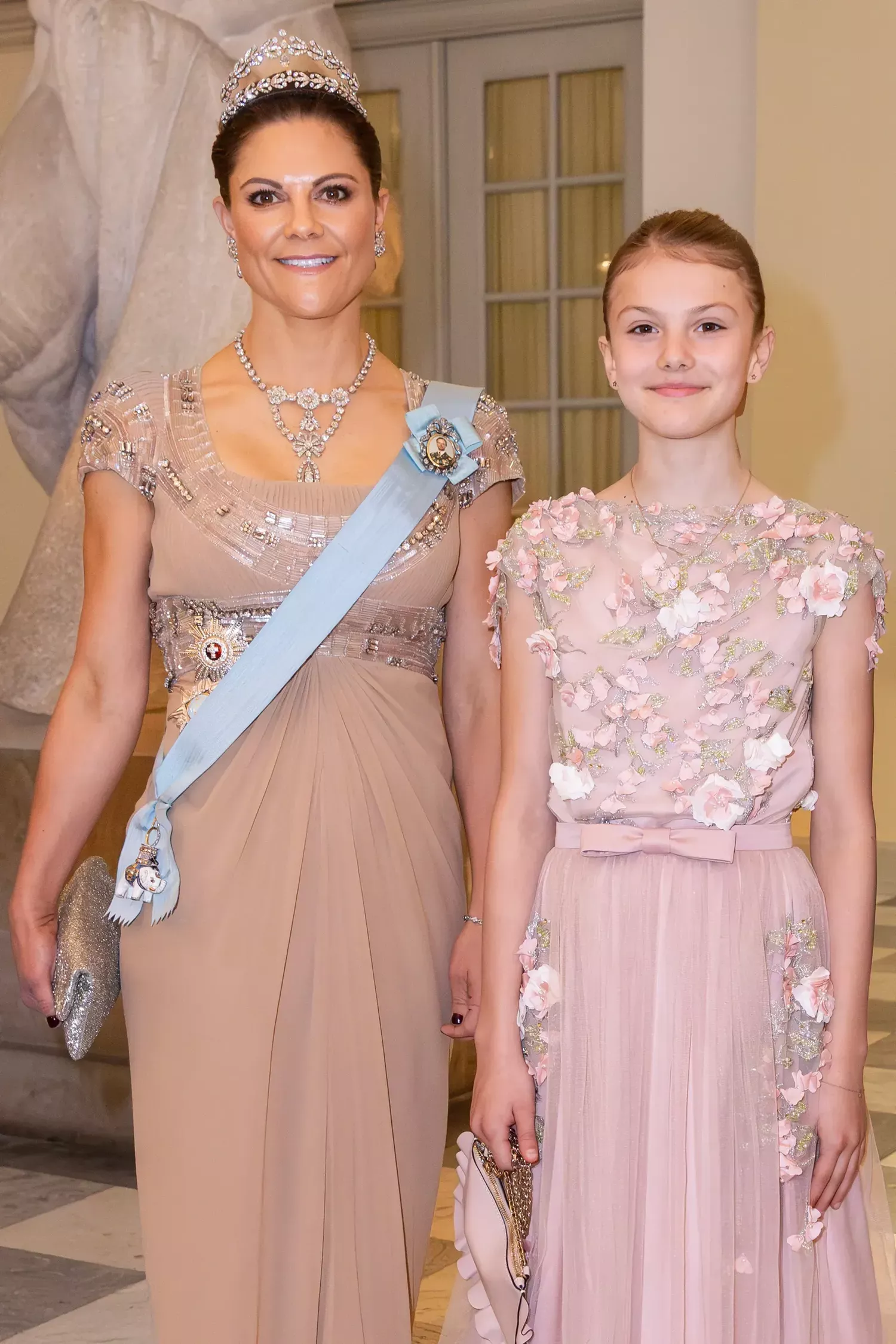
Princess Victoria and Princess Estelle of Sweden. Photo: Getty
The 47-year-old Princess Victoria is another European royal who has benefitted from the modernisation of primogeniture. In fact, she was second-in-line to the Swedish throne at birth, and leapfrogged over her younger brother, Prince Carl Philip, upon the change in the constitution. It caused something of a controversy at the time, as her father, King Carl XVI Gustaf, objected to the change – not because he didn’t want women to succeed, but because of his sympathy towards his son, who was suddenly stripped of his Crown Prince status.
In Sweden, the monarch has even less of a role in public life than in the U.K., and as such, King Carl XVI Gustaf has largely kept out of the spotlight. However, similar to other royals of her generation, Victoria has been more candid about her personal life, and was open about her struggles with anorexia in the 1990s. Speaking about her experience in 2002, she said: “I, Victoria, didn’t exist. It felt like everything in my life and around me was controlled by others. The one thing I could control was the food I put in me.”
Much like Prince Harry, she leaped to the defense of her now-husband, personal trainer Daniel Westering, when the couple’s early relationship came under close scrutiny. Commentary in the Swedish press questioned the appropriateness of their match, something which Victoria spoke out against.
Princess Victoria’s 12-year-old daughter, Princess Estelle, is next in line to the throne after her mother. She has similarly benefitted from the change in the law, as she has a younger brother, Prince Oscar.
Princess Catharina-Amalia of the Netherlands
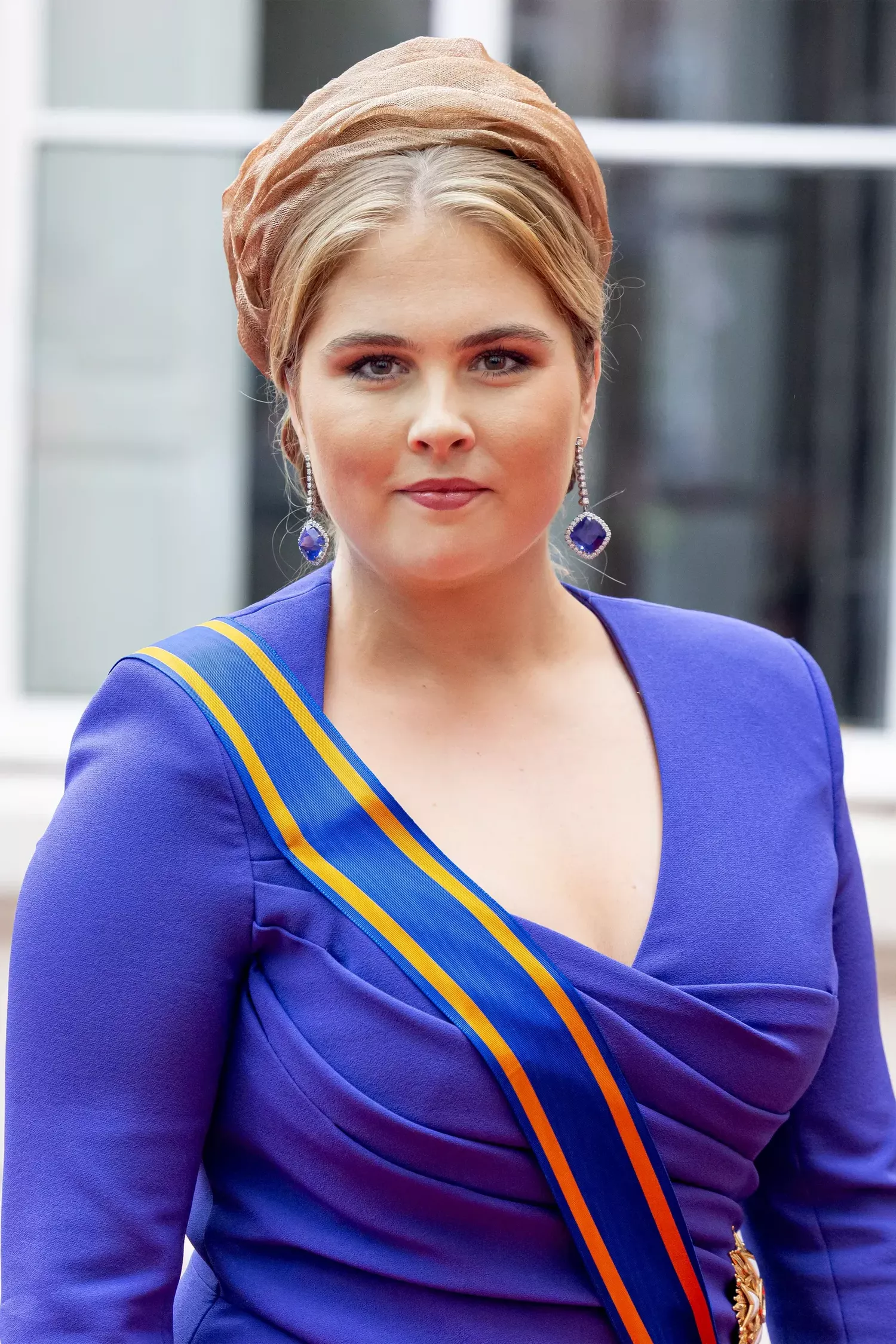
Photo: Getty
Princess Catharina-Amalia is the heir to the Dutch throne and is the eldest of King Willem-Alexander and Queen Maxima’s three daughters. Unusually, the monarchy in The Netherlands has been predominantly female-led, with three Queens reigning in succession from 1890-2013, when Catharina-Amalia’s father became King, so she’s in good company historically.
Unlike her parents, who have committed a handful of regrettable gaffes (including going on holiday to Greece during a Covid lockdown), Catharina-Amalia seems to have her finger on the pulse of the nation. Case in point: she rejected her rights to a yearly royal allowance when she turned 18, ostensibly because as a student (she’s studying politics, psychology, law, and economics at the University of Amsterdam), she’s not a “working” royal, but also, because it felt wrong during a cost of living crisis.
Much like Prince William, the Princess is keen to have a normal university experience, and lived in shared housing with other students until she was threatened with kidnap by a criminal gang. She also attended a public primary school, and even worked in a beach bar in The Hague during her summer break. Like many Gen Z-ers, she has spoken candidly about mental health, revealing she sometimes sees a therapist, and while making no direct comments about it, she was the focus of new legislation that means LGBTQIA+ royals would be able to marry anyone they chose without forfeiting their right to the throne.
The House of Orange is in need of good PR, as its popularity rankings have dropped in recent years, with Catharina-Amalia hopefully just the fresh face it needs.
Originally published on British Vogue.
